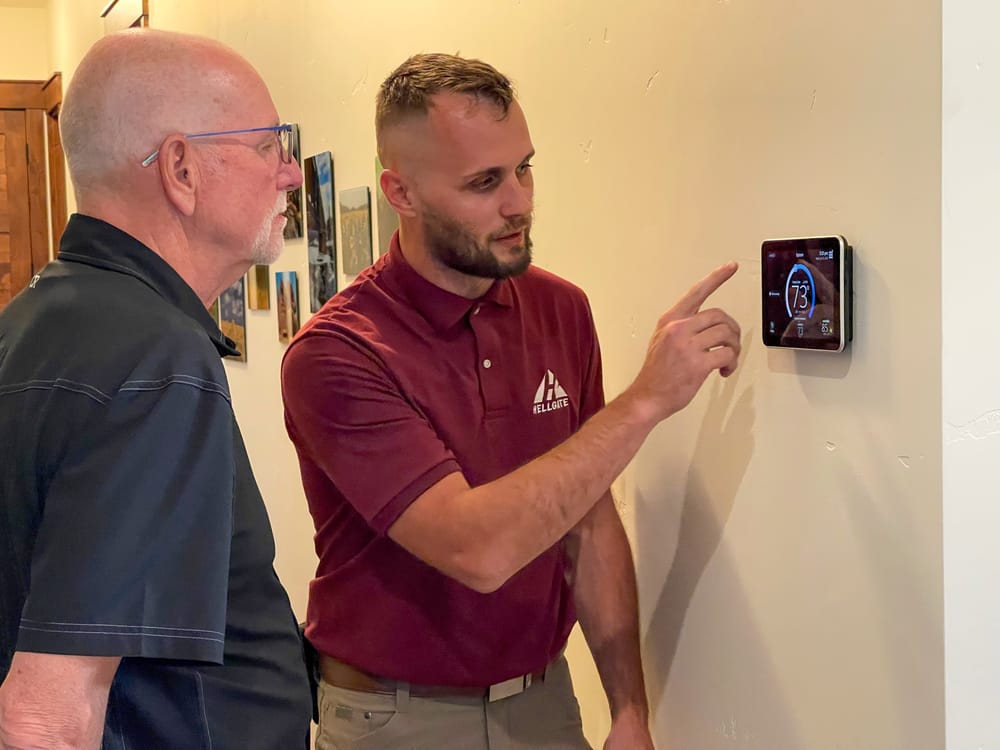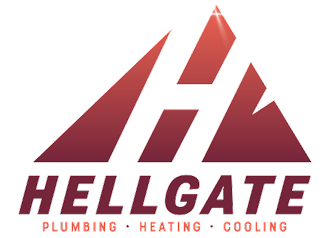Indoor Air Quality Services in the Greater Missoula Area

The air inside your home plays a bigger role in your comfort than most people realize. From lingering dust and allergens to dry air and stale odors, poor indoor air quality can affect how your home feels every single day. If your air feels heavy, dusty, or uncomfortable, your HVAC system may be circulating more than just temperature-controlled air.
Homes in the Greater Missoula area face unique challenges when it comes to indoor air quality. Long heating seasons, closed windows during winter, wildfire smoke, and everyday household activity can all contribute to airborne pollutants building up indoors. Over time, this can impact comfort, system performance, and even how often you need to clean your home.
Hellgate Plumbing, Heating and Cooling provides professional indoor air quality services to help homeowners breathe easier and feel more comfortable at home. From improving airflow to reducing airborne irritants, our solutions are designed to support healthier indoor environments. If your home’s air does not feel as clean or comfortable as it should, our team is ready to help you explore options that make a noticeable difference. Call us or fill out our online contact form to get an appointment set up.

Why Indoor Air Quality Matters
Science shows that the air inside your home can have a bigger impact on your daily comfort than the air outside. Because homes are enclosed spaces, airborne particles can become trapped and recirculated over and over again. Studies have shown that indoor air can contain higher concentrations of pollutants than outdoor air, especially in homes where windows remain closed for long periods of time.
When heating and cooling systems circulate air, they also move dust, allergens, and moisture throughout the home. Without proper filtration, ventilation, and humidity control, these particles remain suspended in the air you breathe. Over time, poor indoor air quality can contribute to increased irritation, lingering odors, excessive dust buildup, and a home that never quite feels fresh.
Key scientific factors that explain why indoor air quality matters include:
- Continuous exposure: People spend most of their time indoors, which means prolonged exposure to indoor air has a greater effect on comfort and well-being than brief exposure outdoors.
- Particle size: Many airborne pollutants are microscopic and easily inhaled, allowing them to remain airborne for long periods and circulate repeatedly through the home.
- Air recirculation: HVAC systems recirculate the same indoor air multiple times per day, which can either improve air quality through filtration or spread pollutants if not properly managed.
- Humidity balance: Science shows that maintaining proper humidity levels helps reduce the spread of airborne particles and discourages the growth of mold and bacteria.
- Ventilation efficiency: Proper ventilation helps dilute indoor pollutants by introducing fresh air, reducing the overall concentration of contaminants inside the home.
Indoor Air Quality Services We Provide
Improving indoor air quality is not about one single solution. It is about creating the right balance between clean air, proper airflow, and comfortable humidity levels. Our indoor air quality services are designed to work with your existing HVAC system to help your home feel fresher, healthier, and more comfortable year-round.
Air Filtration Solutions
Air filters are your first line of defense against airborne particles like dust, pollen, and pet dander. We offer upgraded filtration options that capture more contaminants than standard filters. Better filtration helps reduce dust buildup and supports cleaner air throughout your home.
Air Purification Systems
Air purification systems work to reduce airborne pollutants that traditional filters may miss. These systems help neutralize contaminants as air moves through your HVAC system. Many homeowners choose purification to help with odors, allergens, and overall air freshness.
Humidity Control
Proper humidity levels play a major role in comfort and air quality. Air that is too dry or too humid can cause irritation and create an uncomfortable indoor environment. We provide solutions that help balance moisture levels for improved comfort and system performance.
Ventilation Improvements
Homes that are tightly sealed can trap stale air inside. Ventilation solutions help introduce fresh air while maintaining energy efficiency. Improved ventilation can reduce indoor pollutant buildup and help your home feel less stuffy.
Whole-Home IAQ Assessments
Every home is different, which is why we take a customized approach. Our team evaluates airflow, filtration, and humidity to identify what is impacting your indoor air quality. From there, we recommend solutions that make sense for your home and lifestyle.
We're here to help!
Our team will help you select the perfect Rheem model for your specific needs.
Why Homeowners Choose Us for Indoor Air Quality Solutions
Indoor air quality is personal. It affects how you feel in your home every day, and homeowners want solutions they can trust, not guesswork. That is why families throughout the Greater Missoula area choose Hellgate Plumbing, Heating and Cooling for indoor air quality services.
- Whole-home perspective: We do not treat indoor air quality as a single product or quick fix. Our team looks at how filtration, airflow, humidity, and ventilation work together so improvements are noticeable and long-lasting.
- Solutions matched to real conditions: Western Montana homes face challenges like long heating seasons, wildfire smoke, and dry winter air. We recommend IAQ solutions based on what is actually affecting your home, not generic add-ons.
- Clear explanations without the overwhelm: Indoor air quality can feel complicated. We break down what is happening in your home and explain options in a way that is easy to understand, so you can make confident decisions.
- Integration with your existing system: IAQ solutions work best when they are properly matched to your HVAC system. We ensure everything is installed and adjusted to work together efficiently and effectively.
- Long-term comfort support: Many homeowners choose ongoing system care through our Diamond Club program. Regular maintenance helps keep air quality improvements working as intended and supports overall system performance year-round.
Create a Healthier Home Environment
Cleaner, more comfortable air can make a noticeable difference in how your home feels day to day. If your air feels dusty, dry, or stale, indoor air quality solutions may help restore balance and freshness.
Hellgate Plumbing, Heating and Cooling is ready to help improve indoor air quality in Western Montana with solutions tailored to your home. Call our team today or use our online contact form to schedule a consultation and take the first step toward better air at home.
$100 Off
Air FiltrationExpires: Mar 31, 2026
Fill out this form and our team will get back to you as soon as possible.
Frequently Asked Questions
Get Assistance Today
Don't Wait... Call Hellgate
Responsive and reliable. Help when you need it most. Hellgate Plumbing, Heating and Cooling has provided residents of Missoula, Lolo, Florence, MT, and beyond with reliable and affordable HVAC and plumbing services for over 40 years.
